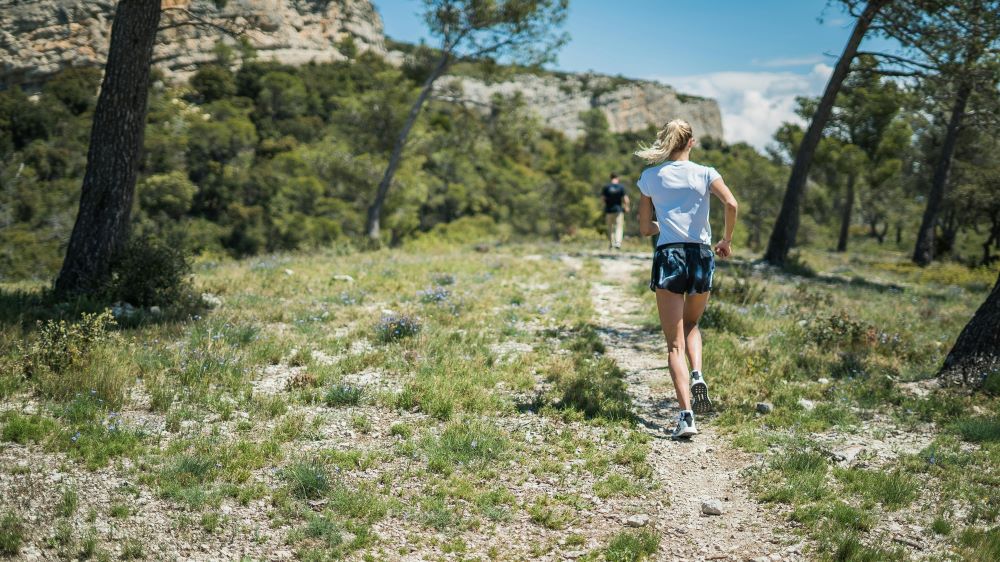In the world of running, the options are as vast as the trails themselves. Whether it’s pounding the pavement, circling the track, or sweating it out on the treadmill, each avenue offers its own unique experience. But there’s a growing trend pulling runners off the beaten path and into the embrace of nature: trail running. Over the past decade, trail running has seen a staggering 231% increase in popularity, drawing enthusiasts with its blend of adventure and physical challenge.
The Trail Running Advantage
Trail running isn’t just about escaping the monotony of urban landscapes; it’s a holistic experience that nourishes both body and mind. As you navigate rugged terrain, your body engages in a symphony of movement, working harder to maintain balance and stability. Unlike the predictable surface of a treadmill, trails offer a dynamic environment that demands constant adaptation, strengthening muscles from your core to your feet.
Enhanced Balance and Stability
One of the key benefits of trail running lies in its ability to sharpen your balance and proprioception—the body’s awareness of its position in space. The uneven surfaces of trails force your muscles to continuously adjust, resulting in a more robust core and improved stability. This not only reduces the risk of falls during your run but also enhances overall coordination and agility.
A Shield Against Repetitive Injuries
For many runners, the repetitive nature of their stride can lead to overuse injuries that plague joints and muscles. Trail running provides a reprieve from this cycle by offering a softer landing surface and varied terrain that reduces strain on vulnerable areas. While the risk of certain injuries like sprains may increase, the overall incidence of repetitive injuries diminishes, allowing for a more sustainable running experience.
Elevating Heart Health with Every Step
Heart health receives a natural boost on the trails, where undulating paths and rugged landscapes put your cardiovascular system to the test. Uphill climbs and technical descents provide an intense cardiovascular workout, improving endurance and circulation. Even short bursts of trail running have been shown to significantly reduce the risk of heart disease, highlighting the accessibility and effectiveness of this outdoor pursuit.
Mindfulness in Motion
Trail running isn’t just a physical endeavor—it’s a mental workout that demands focus and presence. Navigating winding trails and ever-changing scenery requires heightened cognitive function, enhancing memory, spatial awareness, and decision-making skills. As your brain adapts to the challenges of the trail, you’ll find a sense of clarity and mindfulness that transcends the confines of everyday life.
The Healing Power of Nature
Beyond its physical benefits, trail running offers a sanctuary for the soul. Studies have shown that spending time in nature can alleviate stress, reduce anxiety, and elevate mood. The immersive experience of trail running allows runners to disconnect from the pressures of modern life and reconnect with the natural world, fostering a sense of peace and tranquility with each stride.
Embark on Your Trail Running Journey
Ready to lace up your trail shoes and hit the dirt? Before you embark on your trail running adventure, here are some essential tips to ensure a safe and enjoyable experience:
- Choose your trail wisely, opting for routes that match your skill level and terrain preferences.
- Prioritize safety by informing others of your route and running with a friend whenever possible.
- Focus on time rather than distance, adjusting your expectations to account for the challenges of trail running.
- Invest in quality trail running shoes with sturdy support and traction to minimize the risk of injury.
- Dress appropriately for the weather and trail conditions, and stay vigilant to avoid obstacles and hazards along the way.
 With these tips in mind, you’re ready to explore the boundless beauty and exhilarating challenges of trail running. So, step off the beaten path and into a world of adventure where every trail leads to new discoveries.
With these tips in mind, you’re ready to explore the boundless beauty and exhilarating challenges of trail running. So, step off the beaten path and into a world of adventure where every trail leads to new discoveries.


























